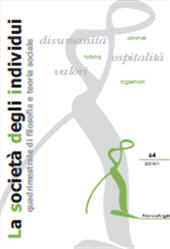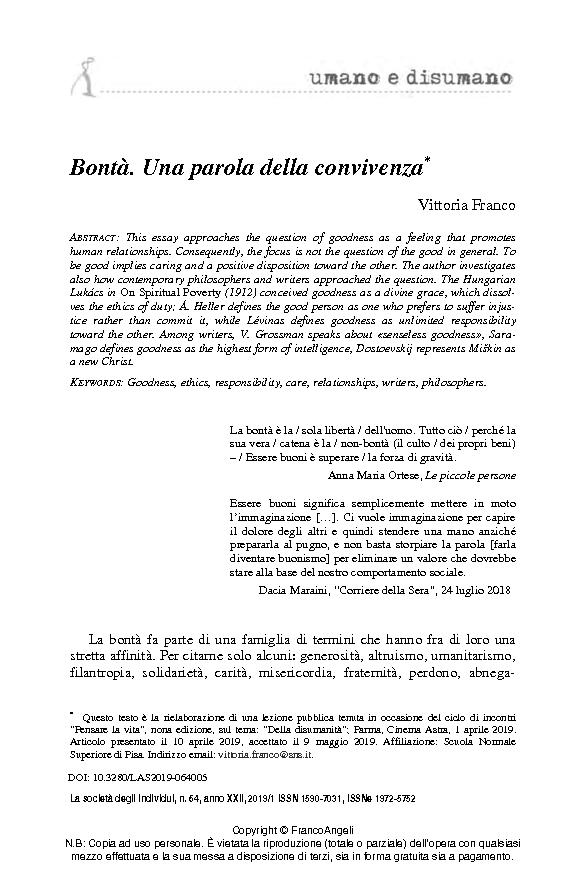Bontà : una parola della convivenza
54-68 p.
This essay approaches the question of goodness as a feeling that promotes human relationships. Consequently, the focus is not the question of the good in general. To be good implies caring and a positive disposition toward the other. The author investigates also how contemporary philosophers and writers approached the question. The Hungarian Lukács in On Spiritual Poverty (1912) conceived goodness as a divine grace, which dissolves the ethics of duty; Á. Heller defines the good person as one who prefers to suffer injustice rather than commit it, while Lévinas defines goodness as unlimited responsibility toward the other. Among writers, V. Grossman speaks about «senseless goodness», Saramago defines goodness as the highest form of intelligence, Dostoevskij represents Miskin as a new Christ. [Publisher's text].
Fa parte di
Società degli individui : 64, 1, 2019-
Articoli dello stesso fascicolo (disponibili singolarmente)
-
Informazioni
Codice DOI: 10.3280/LAS2019-064005
ISSN: 1972-5752
PAROLE CHIAVE
- Goodness, ethics, responsibility, care, relationships, writers, philosophers



